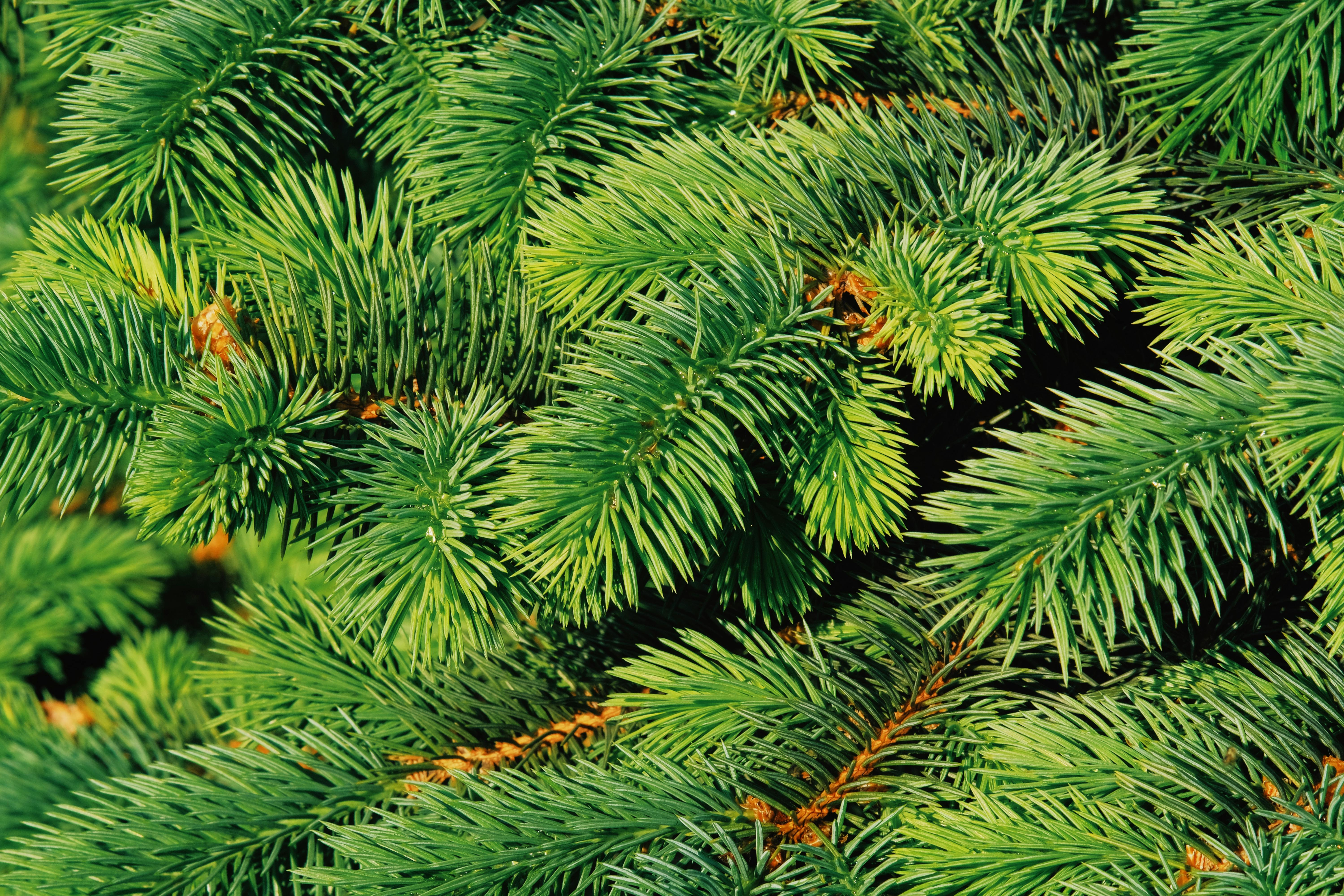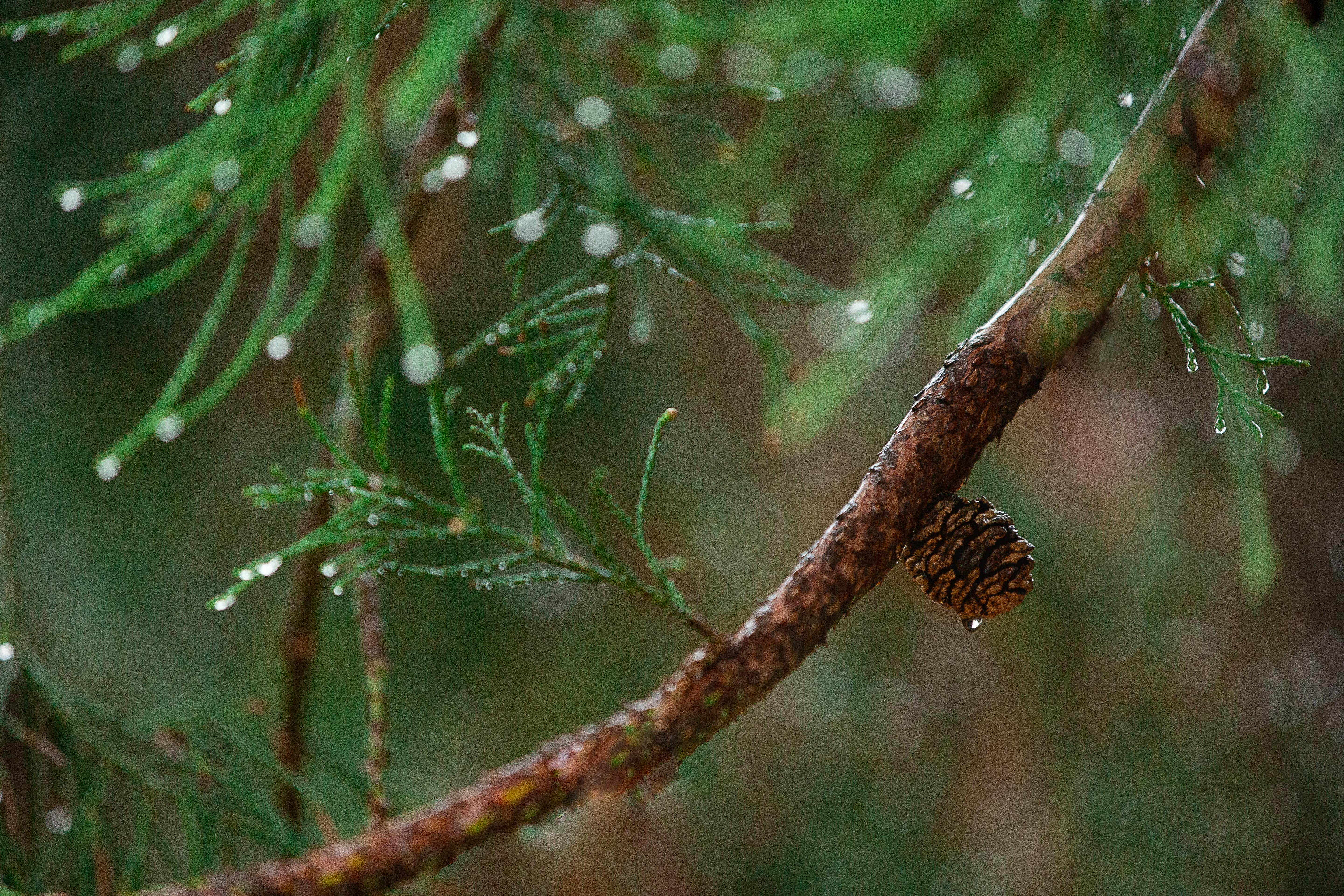Alternatives To Pine Needles For Plant Use
Compost is one of the most popular alternatives to pine needles for plant use. Compost provides numerous benefits to the soil, such as improving aeration and drainage, retaining moisture, and adding nutrients. It can also help prevent soil compaction and regulate pH levels. Compost is easy to create by mixing organic materials such as leaves, grass clippings, vegetable scraps, and plant trimmings with soil. It should be mixed well and allowed to sit for several weeks before use.
Mulch is another alternative to pine needles for plant use. Mulch helps improve soil fertility by adding nutrients like nitrogen and phosphorus. It also helps regulate temperature, control weeds, retain moisture, and protect the roots of plants from extreme temperatures. Mulch is typically made from organic materials like bark chips, shredded leaves, or straw. It should be applied in a 2- to 3-inch layer around plants for best results.
Gravel is a third alternative to pine needles for plant use. Gravel helps improve drainage by creating pathways for water to flow away from the roots of plants. It also helps retain moisture in the soil by preventing evaporation. Gravel can be used as a top dressing on flower beds or vegetable gardens to help control weeds and reduce erosion.
Keeping Pine Needles Away From Plants
The presence of pine needles around plants can be both a blessing and a curse. On the one hand, they provide nutrients to the soil, but on the other hand, they can be an eyesore and even interfere with the growth of plants. Fortunately, there are several ways to keep pine needles away from your plants.
One option is to use mulch or ground cover in areas that tend to accumulate pine needles. This will help hold them in place while creating a barrier between them and your plants. Mulch also helps retain moisture in the soil, which is essential for healthy plant growth. Additionally, mulching can help prevent weeds from growing near your plants.
Another way to keep pine needles away from your plants is to rake them up regularly. This will help reduce the amount of needles around your plants and decrease the chances of them interfering with their growth. Additionally, you can use a leaf blower or vacuum cleaner to get rid of any remaining needles that may have accumulated on top of the soil.
You can also set up barriers around your plants to keep pine needles away. This could include using fencing or raised beds as well as trellises or lattices for vines and shrubs. These barriers will help contain any stray needles while providing additional support for your plants as they grow.
Finally, you can try planting ground cover such as grasses or perennials near your plants that are resistant to pine needle damage. These types of ground covers will help crowd out any stray needles while providing additional nutrients for healthy plant growth.
By taking these steps and being vigilant about removing any stray pine needles, you can help ensure that your plants stay safe and healthy despite their proximity to those pesky little critters!
Is It Bad To Have Pine Needles Around My Plants?
Having pine needles around your plants can be beneficial in many ways. Pine needles are a great source of organic material which can help to increase the amount of nutrients and moisture available to the plants. Additionally, pine needles provide a natural mulch which can help protect plants from extreme temperatures and help retain moisture in the soil.
However, there are certain drawbacks to having pine needles around your plants. Pine needles are acidic and can cause soil pH levels to become too low for some plants to thrive. If you have acidic-loving plants such as azaleas or rhododendrons, then pine needles may be beneficial, but for other types of plants, they may be detrimental.
Another potential problem with having pine needles around your plants is that they can be a source of disease if not kept clean and dry. Pine needles can harbor fungal spores which could spread to other nearby plants if they become wet or damp. For this reason, it’s important to keep your pine needles dry and free from debris such as fallen leaves or twigs.
In conclusion, while having pine needles around your plants can have some benefits, it is important to consider both the potential pros and cons before deciding whether or not it’s right for you and your garden. If you choose to use them make sure you keep them clean and dry so that they don’t become a source of disease for other nearby plants.

Removing Pine Needles From Around Plants
Removing pine needles from around plants can be a difficult task. The needles are sharp and can easily damage delicate plants, so it is important to take care when removing them. There are a few methods that can be used to safely remove pine needles from around plants.
One way to remove pine needles is by hand-picking them off the ground and away from the plants. This method requires patience and caution, as the needles can easily puncture the skin or damage the plant’s foliage. To minimize the damage, use gloves when doing this task and gently pluck the needles away from the plant.
Another way to remove pine needles is by using a rake or broom. This method is best suited for larger areas where there are many needles to be removed. Simply rake or sweep up the needles with a wide broom and then dispose of them away from your garden bed.
For stubborn needles that won’t come out easily, try using a vacuum with an attachment designed for picking up small debris like pine needles. This tool works well for getting into tight spaces around plants that can’t be reached with a rake or broom.
Finally, if you have an area that needs frequent cleaning of pine needles, consider covering it with mulch or bark chips instead of trying to constantly pick up the fallen debris each time it accumulates. This will help keep your garden beds looking neat and tidy while also protecting your plants from potential damage caused by falling debris.
In summary, there are several ways to remove pine needles from around plants safely and effectively. Hand-picking, raking/sweeping, vacuuming, and mulching are all effective methods that can be used depending on your specific situation.
Can I Add Composted Pine Needles To My Soil?
Yes, you can add composted pine needles to your soil. Pine needles are an excellent source of nitrogen and other essential nutrients for your plants and are also rich in organic matter. Composting pine needles helps break down the nutrients so that they can be more easily absorbed by the plants.
Composting pine needles is easy and can be done at home. First, collect the needles from a local forest or park. Then, spread them out on a tarp or in a plastic bin and let them sit for several weeks to a few months until they have broken down into a fine, dark-colored material. Once composted, the needles can be added directly to your garden soil or mixed with other organic matter such as compost or mulch.
Adding composted pine needles to your soil is beneficial for many reasons. It helps improve drainage and aeration, which increases water availability for plants as well as air circulation around roots. It also adds organic matter which improves soil structure, encourages beneficial microbial activity, and provides nutrients like nitrogen which help promote healthy plant growth.
Pine needles are one of the best sources of nitrogen for your garden soil, but they should not be used as the sole source of nitrogen. Be sure to mix in other kinds of organic matter such as compost or manure to ensure that your soil is well-balanced with all necessary nutrients for healthy plant growth.
Remember that when adding any kind of organic material to your soil it’s important to test the pH level before adding more fertilizer or adjusting levels with lime or sulfur. Adding too much fertilizer or lime can damage sensitive plants, so it’s important to test regularly and adjust accordingly for optimal growth results!
What Are The Benefits Of Adding Composted Pine Needles To Soil?
Adding composted pine needles to soil can provide a range of beneficial effects for gardeners and landscapers. Pine needles are rich in essential nutrients, such as potassium, calcium, magnesium, and nitrogen, all of which are essential for healthy plant growth. Composted pine needles also help to aerate the soil and improve its water-holding capacity, making it better suited for growing plants. Additionally, composted pine needles help to reduce the amount of fertilizer needed by plants as they decompose slowly over time and release their nutrients into the soil. Finally, composted pine needles help to reduce soil erosion and improve the overall health of the soil by adding organic matter which adds to the microbial content of the soil.
In short, adding composted pine needles to soil can offer a range of benefits including improving nutrient content, increasing water-holding capacity, reducing fertilizer needs, controlling erosion, and improving microbial content. With these benefits in mind, it is easy to see why gardeners and landscapers often turn to composted pine needles when looking for ways to improve their soils.

Conclusion
It is clear that plants do not like pine needles. Pine needles are acidic and can interfere with the growth of plants by lowering the pH of the soil. They can also create a physical barrier that prevents roots from penetrating deep into the soil, which can limit a plant’s ability to obtain water and nutrients. Additionally, pine needles can prevent sunlight from reaching the soil and reduce photosynthesis in plants. All of these factors make it difficult for plants to thrive in soils with an abundance of pine needles.
However, there are a few ways to reduce the negative effects of pine needles on plants. Adding compost, mulching, and avoiding overcrowding can help to reduce the acidity of soils and improve their texture. When used in moderation, pine needles may even provide some benefits to certain types of plants. Regardless, caution should be taken when using them as mulch or ground cover around sensitive species.
In conclusion, while it is best to avoid using large amounts of pine needles around plants, they can still be used in moderation for certain types of plants as long as precautions are taken.

